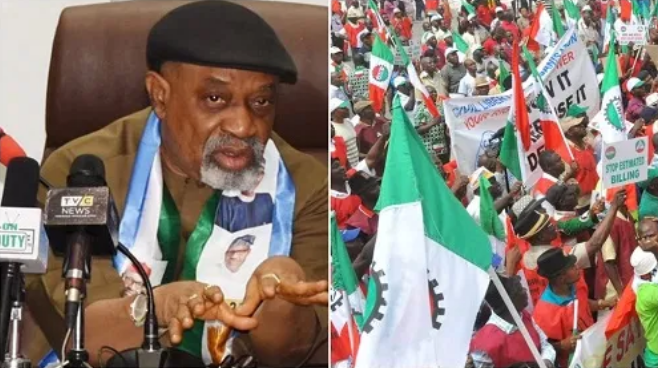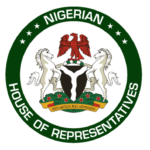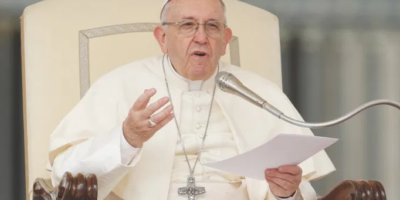NLC Demands Emergency In Oil Downstream Sector

The organised labour yesterday called on the Federal Government to immediately declare a state of emergency in the downstream arm of the petroleum sector as a means of arresting the rising price of petrol.
In addition, it advised the government to enter into a contract with refineries closer home to Nigeria to reduce the freight cost of the product.
While reacting to the fresh increase in the pump price of fuel from N160 per litre to N168 per litre, President of the Nigeria Labour Congress (NLC), Dr. Ayuba Wabba, asked the Federal Government to reverse the increase in the fuel price, saying the action is condemnable.
He described the recent increase in the pump price of petrol as a breach of the spirit and content of what the organised labour agreed with the government at the last negotiations over the last fuel price increase.
In a statement yesterday, Wabba said the congress had asked its affiliate unions in the petroleum industry for updates on how the Federal Government had kept to the agreement reached with labour to enable it to decide on the next line of action.
According to him, there is disquiet in the land over the extraordinary level of inflation in the country.
He added that the recent increase in the pump price of fuel has only exacerbated the suffering of the people whose standard of living is dropping by the day.
He said one of the measures NLC is proposing is
for government to declare a state of emergency in our downstream petroleum sector.
The NLC said the government should enter into a contract with refineries closer home to Nigeria to ensure that the cost of supply of crude oil is negotiated away from the prevailing international market rate so that the landing cost of refined petroleum products is significantly reduced.
It said:
The government should also demonstrate the will to stamp out the smuggling of petroleum products out of Nigeria. We need to see big-time petroleum smugglers arraigned in the court of law and made to pay for their crimes against the Nigerian people.
The government has the resources available to it to ensure this economic justice to Nigerians. The question in the minds of many Nigerians is if the government is willing to go headlong against major financiers of the major political parties that are known to the public as the architects of the current national woe.
We also demand that Nigerians should be carried along on the distribution of refined petroleum products. Information on the distribution of petroleum products to petrol stations should be advertised and made public knowledge. It should not be difficult to establish the average time it takes a petrol station to exhaust its supplies.
It called on the government to review the entire process of licensing for modular and bigger refineries.
It is queer to depend on the enterprise of one man to fix Nigeria’s downstream petroleum subsector. The more public and private refineries in play the higher the competition. This would serve end consumers who would benefit from lower prices,
it said.
The organised labour said it would not accept a fait accompli of the monopoly of Nigeria’s downstream petroleum sector or the emergence of a cartel of oligarchs whose end game is mass pauperisation.
It added that in line with its recent agreement with the government, it would be receiving updates in the next few days from its unions in the petroleum sector, which had been given the mandate to keep surveillance on the government’s promise to overhaul public refineries.
It said it would also receive updates from its representatives in the electricity review committee to enable it to determine whether the government has kept to its side of the bargain which is to take serious steps to recover and reposition the nation’s public refineries.
The outcome of this engagement will determine our response in the coming days. But while we are at that, we condemn the recent price increase and we call for its reversal with immediate effect,
it said.
Sylva: Petrol Subsidy Unfair to Masses
Meanwhile, the Minister of State for Petroleum, Mr. Timipre Sylva, yesterday described the removal of petrol subsidy as an appropriate action because it favours only the elite at the expense of the poor.
Briefing journalists after meeting with President Muhammadu Buhari in the State House, Abuja, Sylva said if prices of diesel and kerosene, which are petroleum products used by the poorest people of the society had long been deregulated, it would be unfair not to deregulate the price of petrol consumed mainly by the rich.
According to him, end-users of diesel, for instance, are peasant farmers whom he said regularly transport their farm produce through trucks, powered by diesel, adding that users of kerosene are also the masses who cannot afford to buy cars.
He wondered why deregulating the petroleum downstream sector would generate issues when products mainly consumed by poorer people have long been deregulated.
He said:
Look at it, a situation where diesel has been deregulated long ago, a situation where kerosene has been deregulated long ago, and these are the fuels that the poorest and lowest people in Nigeria interacted with more.
Why do I say that? If you want to transport food from the North to the South, it will be by trucks that are run by diesel, not with petrol. Those trucks that transport food from the North to the South are usually run by diesel.
Kerosene is the preferred fuel at the lowest level of our society. These have been deregulated long ago. So, what is the problem with deregulating petrol, which is mostly used by the elite?
Let us be fair to this country. Let us be fair to the poor people of the country. If we have deregulated what they were using, then there is absolutely no reason to subsidise petrol. I feel so. The only explanation for everything we have said is the country just could not afford subsidy anymore.
Sylva explained that if the subsidy regime continues in the face of the drastic fall in the prices of crude oil in the global market and oil production cut by the Organisation of Petroleum Exporting Countries (OPEC), the federal government would get to the level where it would be unable to pay salaries after paying subsidy.
He added that the latest hike in the pump price of petrol from N157-N160 to N167-N170 was the fallout of the rise in crude oil price in the international market following the 90 per cent successful trial of COVID-19 vaccine announced by Pfizer.
He said following the deregulation of fuel supply, the pump price of petrol would continue to rise whenever the prices of crude oil increase in the international market and go down when the crude oil prices crash.
Sylva said:
Before now, we fixed it, which was not optimal for us as a country. So, we said, ‘look, our earnings are not fixed because our earnings are dependent on the crude oil price.’ If we fix it at this end, then it becomes unsustainable at some point. So, let us keep it floating so that if crude oil prices go up, then you’ll see a reflection of that. If crude oil prices go lower, you’ll see a reflection of that at the pump.
Now, what happened recently was because of the announcement of a vaccine for COVID-19 by Pfizer. With that, crude oil prices went up a little bit. Of course, you have been following crude oil prices. You would have seen that crude oil prices went up a little bit, as a result of this announcement.
He said the federal government had to choose between removing petroleum subsidy and running into other crises as a result of lower oil production and crash of crude oil price.
The minister, who reiterated that the government earnings had reduced by 60 per cent as a result of the trend in the oil sector, added that the situation has dire effects on revenue generation by the Federal Inland Revenue Service (FIRS).
According to him,
If the government were to continue with the subsidy, it means for example that at some point, we may not even have money after subsidising petrol to pay salaries.
You have to make a choice. It is very clear that today, things are not as they were before. The earnings of government have reduced by 60 per cent and what is happening in the oil sector reflects what is happening elsewhere.
Our FIRS collection has also reduced because less oil is being produced. There is less activity in the oil industry, which is driving the economy. So, you find out it is a double whammy from all sides.
I am telling you, if Mr. President could have continued with the subsidy, he would have. But when you look at the facts before us, it is not possible and of course, we are seeing some of the effects but I believe that at this point, we are still trying to cross the first buck. We will get there. We will get used to it as Nigerians.

Justin Nwosu is the founder and publisher of Flavision. His core interest is in writing unbiased news about Nigeria in particular and Africa in general. He’s a strong adherent of investigative journalism, with a bent on exposing corruption, abuse of power and societal ills.













